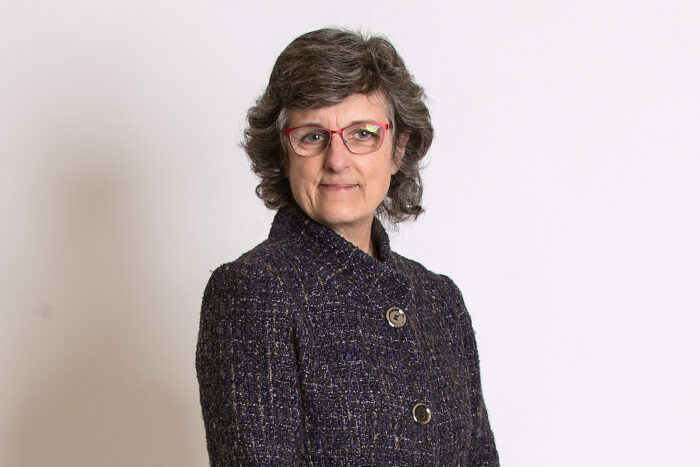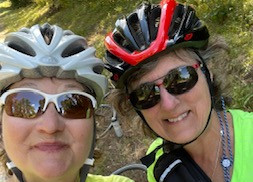This is the third in an occasional series of blog posts about a visit to Rwanda this past summer. The first and second can be found at the included links.
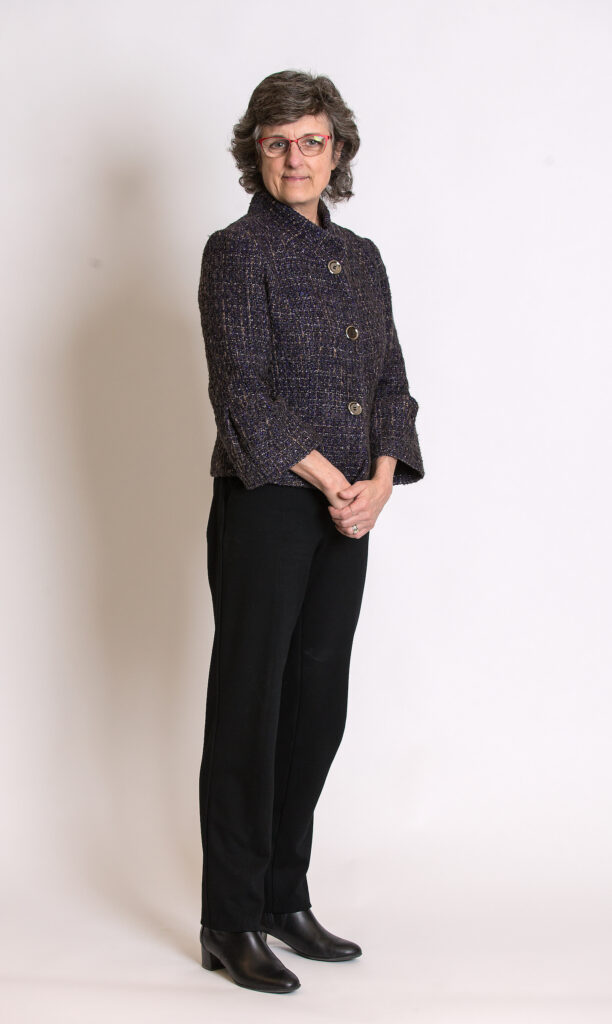
In the hills of Rwanda lies a small yet powerful symbol of hope and humanity — the Rweru Reconciliation Village. This unique community, located in the Bugesera district, is home to a blend of genocide survivors and perpetrators who have chosen to live side by side in the aftermath of one of the darkest chapters in modern history. The village exemplifies the power of forgiveness, the resilience of the human spirit, and the strength of Rwanda’s nationwide commitment to unity and reconciliation.
Born from tragedy
In the years that followed the 1994 Rwandan Genocide against the Tutsi, Rwanda embarked on a remarkable journey of recovery. A key part of that journey was the country’s dedication to reconciliation and justice through local Gacaca courts (the subject of a future blog post), a traditional community-based legal system, which allowed perpetrators to confess, express remorse, and seek forgiveness. As this national process unfolded, the idea for reconciliation villages such as Rweru took root. They were designed as places where survivors and perpetrators could come together to rebuild trust, heal wounds, and forge a future based on forgiveness.
Living testimonies: stories of survival and forgiveness
During our first days in Rwanda, we visited the Kigali Genocide Memorial and the Nyamata Genocide Memorial — somber places filled with the weight of unspeakable loss and tragedy as portrayed in a prior blog post, Putting A Face to the Harm–Commemorating Lives. One afternoon, however, we entered a different reality as we visited the Rweru Reconciliation Village. For us, the emotional shift was palpable. We were immediately embraced by the warmth and vibrancy of a community that, despite its painful past, radiated hope, resilience, and the power of forgiveness. The contrast between the memorials and the village was profound, reminding us of both the depths of human suffering and ongoing trauma and the strength of the human spirit to heal and rebuild.
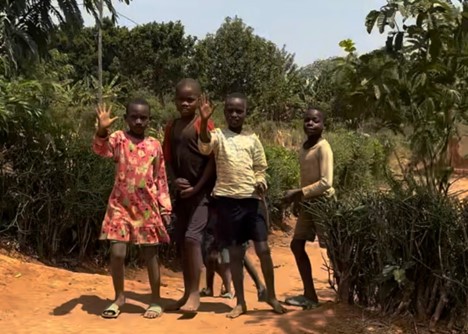
As we entered the village, a group of playful and curious children greeted us, embodying the hope that this place defines.
Shortly after, we were welcomed into a room filled with villagers, who greeted us with song and dance. The villagers’ performance was not just a welcome but a reflection of the collective spirit of reconciliation that thrives in Rweru—an experience that left a lasting imprint on all of us.
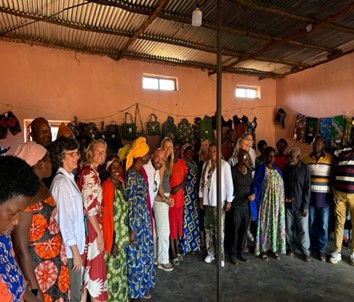
Within Rweru, the concept of reconciliation is not just theoretical— it is lived each day. The village houses both survivors who lost everything during the genocide and former perpetrators who have completed their sentences and sought forgiveness. Their stories are deeply moving and offer insight into the complexities of forgiveness.
One of the most powerful stories we heard was that of Maria Izagiriza, a survivor, and Philbert Ntezirizaza, a former perpetrator, who now live side by side. At their request, I share their story. Through an interpreter, Maria courageously shared her painful journey, offering a glimpse into her experiences and resilience. Maria’s husband and six of her nine children were brutally murdered during the genocide. Her emotional wounds were so deep she thought she could never heal. Her pain was compounded when she discovered that her neighbor, Philbert, had participated in the massacre that took her loved ones.
Philbert, who was imprisoned after the genocide, carried with him the burden of guilt. After serving his time, he returned to the community with a heart full of remorse. Like many others who had been part of the violence, he sought to make amends through Rwanda’s reconciliation process. Philbert knew that facing Maria would be one of the hardest things he had to do, but he also recognized it was essential for both of them to move forward.
When Philbert first approached Maria to ask for her forgiveness, the meeting was tense. Maria could barely contain her anger and sorrow. How could she forgive the man responsible for the deaths of her family? But over time, through multiple encounters facilitated by the village’s reconciliation programs, Maria saw the deep remorse in Philbert’s eyes. He shared how he had been consumed by violence and hatred but had come to understand the gravity of his actions. He asked for her forgiveness, not to absolve him of his guilt, but to help them both take a step toward healing.
It took years, but Maria, driven by her faith and a desire to free herself from the emotional chains of hatred, made the incredibly difficult decision to forgive Philbert. In doing so, she found a sense of peace she hadn’t felt since the genocide. Today, Maria and Philbert are not just neighbors but collaborators. They work together in the village fields, helping to grow food that sustains their community. Their story is a testament to the possibility of reconciliation, even between individuals whose lives have been torn apart by unimaginable violence.
The importance of forgiveness and reconciliation
The process of reconciliation in Rwanda is not without challenges. For many, forgiveness is a slow and deeply personal journey, shaped by cultural and spiritual beliefs. But for those who live in Rweru and other reconciliation villages, forgiveness is seen not as condoning past atrocities, but to break free from the cycle of hatred.
The Rweru Reconciliation Village plays a critical role in Rwanda’s broader recovery. By housing both survivors and perpetrators in the same community, it creates a space for restorative practices to thrive and where healing can occur through daily interaction. The village is designed to foster dialogue, mutual understanding, and cooperation. Residents participate in joint activities, such as farming and building homes, which create opportunities for shared purpose and trust-building.
The impact of this model reaches far beyond the village. It shows the world that even in the face of unspeakable horrors, it is possible for communities to come together, forgive, and rebuild. Rwanda’s example of national reconciliation demonstrates the power of collective healing, and reconciliation villages like Rweru are a testament to the strength of that process.
During our visit, we also had the opportunity to engage in a powerful exchange of questions with the villagers. I asked them what they believed would have happened if forgiveness and reconciliation had not been embraced after the genocide. One villager’s response was profound and haunting: “We would have destroyed each other,” he said, explaining how anger and hatred could have consumed them entirely, leaving no chance for peace or survival. The choice to forgive, they emphasized, was not just for healing; it was a matter of survival for their community and the future of their children.
In turn, the villagers asked us a couple of question as well: “Why are Americans so divided when they have everything? Can Americans forgive?” These questions struck deeply, not because of their simplicity, but because of their complexity. In a country like Rwanda, where reconciliation had been necessary to rebuild after such devastating loss, their observation about division in a nation like the United States felt both insightful and challenging. These were not easy questions to answer, and they left us reflecting on our own capacity for forgiveness, unity, and what it truly means to heal from deep divides.
A national model for healing
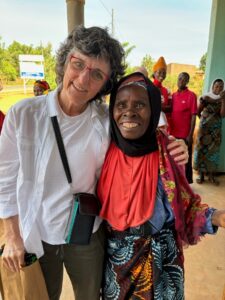
The success of Rweru has inspired the creation of other reconciliation villages across Rwanda. These communities are part of a larger vision of unity championed by the Rwandan government and the National Unity and Reconciliation Commission. The goal is to foster peace and solidarity, not just among individuals, but across the entire nation. Rwanda has made it clear that its future will be built on a foundation of unity, not division.
While the scars of the genocide will never fully fade, the people of the Rweru Reconciliation Village are living proof that it is possible to move forward. Their lives are a testament to the transformative power of forgiveness, restorative justice, and the resilience of the human spirit. By choosing reconciliation over revenge, many in Rwanda have redefined the future of their community, setting an example for their country — and the world — that peace can arise even from the darkest of times.
